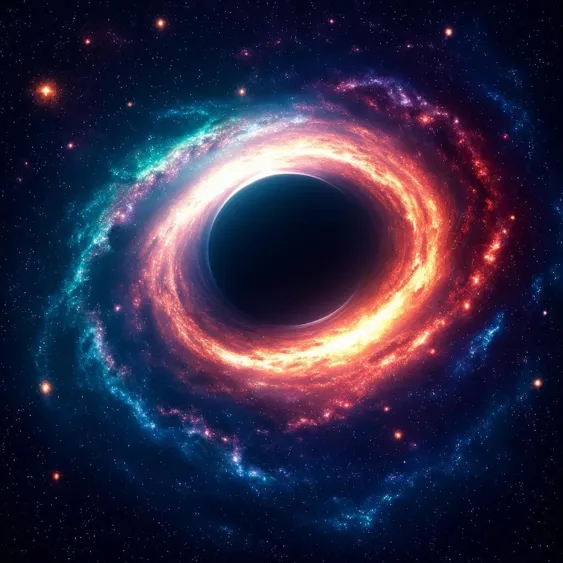Oldest Known Black Hole Discovered: A Cosmic Breakthrough

The discovery of the oldest known black hole carries immense significance for our understanding of the universe. Announced on August 13, 2025, this finding led by an international team from the University of Texas at Austin, using the James Webb Space Telescope (JWST), challenges pre-existing theories of cosmic evolution. Such breakthroughs not only intrigue scientists but also pique public curiosity about the cosmos, reflecting our innate quest to unravel the mysteries lurking in the vastness of space.
The black hole, located in galaxy CAPERS-LRD-z9, is estimated to have formed just 500 million years after the Big Bang, making it approximately 13.3 billion years old. This supermassive black hole is estimated to be 1.3 trillion times the mass of Earth, which reportedly accounts for half the total stellar mass of its host galaxy. Researchers posit that the intense radiation emitted from the black hole arises from the rapid consumption of gas and dust at incredible speeds, heating the material to extreme temperatures. This raises intriguing questions about the mechanics of black hole formation—particularly how such a massive entity could have developed in such a brief period after the universe's inception.
This discovery not only rewrites a portion of cosmic history but also suggests that supermassive black holes may have formed much earlier than previously thought. As astronomers refine their models of early galactic evolution, they must consider possibilities that challenge the traditional explanations for black hole growth. In an era where space exploration technology is rapidly advancing, this finding opens avenues for further investigation into the early universe, perhaps indicating that faster mechanisms of black hole formation existed than we currently understand.
In essence, the discovery of the oldest black hole not only prompts a reevaluation of cosmic timelines and growth mechanisms but also raises the question: what other remarkable secrets does the universe hold that we have yet to uncover?
Read These Next

Carbice's Ice Pad: The Future of Thermal Management
The commentary highlights the significance of Carbice's Ice Pad, a thermal interface material made from carbon nanotubes, discussing its implications for consumer technology and thermal management solutions.

China Launches Largest Transport Networks with Record Investment
In 2023, China's transport infrastructure reached new heights with major investments, creating extensive networks vital for economic growth.

OpenAI Supports New Player in Brain-Machine Interfaces
This commentary explores the recent funding of Merge Labs by OpenAI's Sam Altman, competing with Neuralink, in the brain-machine interface sector, highlighting their contrasting approaches and ethical considerations.
